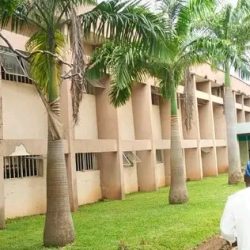The National Cereals Research Institute (NCRI) Badeggi, one of Nigeria’s fifteen agricultural research institutes, plays a pivotal role in advancing the country’s agricultural sector. Under the Federal Ministry of Agriculture and Food Security, NCRI focuses on enhancing cereal production, along with other key crops, through research and development. Established by an Agricultural Research order in 1975, its legacy dates back to 1898 when the British Colonial Administration first established a botanical observatory in Lagos. This article explores the rich history, evolving mandate, and significant contributions of NCRI to Nigerian agriculture, highlighting its national and international collaborations.
Historical Background of NCRI
The origin of NCRI can be traced back to 1898, when the British Colonial Administration laid the foundation for agricultural research in Nigeria by establishing an observatory botanical garden in Lagos. Over time, this initiative evolved into a structured Department of Agriculture, charged with addressing the growing need for organized agricultural practices in the colony.

In 1954, the botanical garden transitioned into the Federal Department of Agricultural Research, situated at the Moor Plantation in Ibadan. This department played a critical role in coordinating research efforts on various crops and farming systems across Nigeria. The establishment of the Agricultural Research order of 1975 marked the official inception of NCRI, which was initially mandated to address the issues concerning rice, maize, grain legumes, and sugarcane, as well as farming systems across Nigeria.

The Founding of NCRI (1975)
The Agricultural Research Order of 1975 was a landmark in the formalization of agricultural research in Nigeria. NCRI, headquartered at Moor Plantation in Ibadan, was tasked with focusing on a limited scope of research at its inception. Its primary mandate included the study of rice, maize, grain legumes, and sugarcane. These crops were seen as critical to Nigeria’s agricultural economy, and research efforts were directed at improving their productivity and disease resistance.
Relocation to Badeggi (1984)
In December 1984, a significant transition took place when the headquarters of NCRI was moved from Moor Plantation, Ibadan, to Badeggi in Niger State. This relocation was driven by the need to establish the institute’s presence in one of the country’s major rice-growing regions. Badeggi, historically a rice research station, provided an ideal location for NCRI to continue its work in crop research, particularly rice cultivation. The move signaled NCRI’s commitment to closer integration with farming communities and agro-ecological zones most relevant to its mandate.
Mandate Expansion in 1987
In 1987, following the reorganization of Nigeria’s agricultural research institutes, NCRI’s mandate was significantly expanded. This restructuring not only broadened the scope of crops under its purview but also emphasized its role in farming systems research. The expanded mandate included genetic improvement and research on rice, sugarcane, soybean, acha (a type of millet), beniseed (sesame), and castor. This expansion positioned NCRI as a critical institution in addressing food security challenges by improving key staple and industrial crops.
NCRI’s National Mandate
The revised national mandate of NCRI revolves around the genetic improvement of the crops within its portfolio. Rice, as Nigeria’s staple crop, remains a priority, but other crops like sugarcane, soybean, and beniseed have gained prominence due to their economic and nutritional importance. NCRI has made strides in improving disease resistance, increasing crop yield, and enhancing the adaptability of these crops to Nigeria’s diverse agro-ecological zones.
In addition to crop-specific research, NCRI is heavily involved in Farming Systems Research and Extension (FSR/E), aiming to improve the efficiency of farming practices across Nigeria. By adopting a systems-based approach, NCRI seeks to address both crop production and the socioeconomic factors affecting Nigerian farmers.
NCRI’s Role in Rice Research
Rice has been a central focus of NCRI since its early days, particularly given Nigeria’s dependence on rice as a staple food. NCRI’s research has led to significant breakthroughs in developing high-yield and disease-resistant rice varieties. The Institute’s work has directly contributed to the reduction of Nigeria’s reliance on imported rice, fostering a more self-sufficient rice production industry. Advances in rice farming techniques, including better irrigation practices and pest control strategies, have also emerged from NCRI’s extensive research programs.
Research on Other Key Crops
Beyond rice, NCRI’s research on soybean has also played a crucial role in boosting Nigeria’s agricultural economy. As a key source of protein, soybean’s importance has risen both in human consumption and livestock feed production. The Institute’s work in improving soybean varieties has led to greater resistance to diseases and increased yield per hectare.
NCRI’s sugarcane research has similarly had far-reaching impacts, particularly in supporting Nigeria’s sugar industry. The Institute’s focus on enhancing sugarcane varieties with higher sucrose content has improved the efficiency of sugar production.
The beniseed and castor improvement programs are equally vital, especially for small-scale farmers who rely on these crops for income. NCRI’s efforts to increase their disease resistance and yield potential are integral to the continued success of these crops in the Nigerian agricultural landscape.
Outstation Network and Coverage
NCRI’s research is not limited to its headquarters in Badeggi. The Institute operates a network of ten outstations spread across the country, strategically positioned to cover the major agro-ecological zones. These outstations include locations in Ibadan (Oyo State), Warri (Delta State), Amakama-Olokoro (Abia State), Uyo (Akwa-Ibom State), Bacita (Kwara State), Mokwa (Niger State), Birnin-Kebbi (Kebbi State), Numan (Adamawa State), Yandev (Benue State), and Riyom (Plateau State).
The decentralized nature of NCRI’s research activities ensures that on-farm adaptive trials are conducted in multiple locations to address the unique challenges posed by different ecological regions. These trials are crucial for ensuring that the Institute














